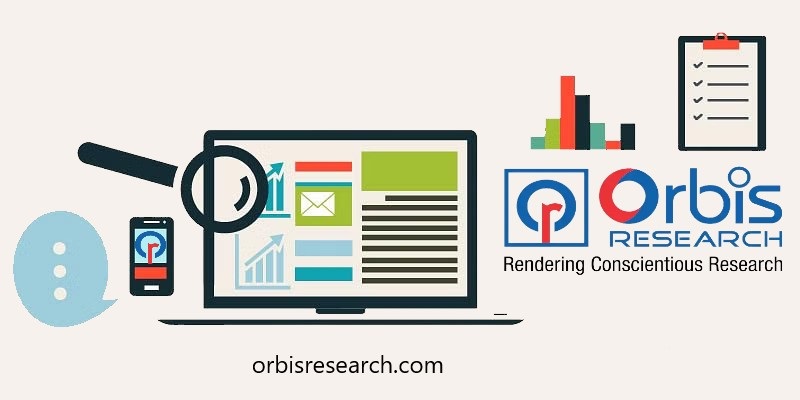
At the grocery store, organic suggests food is all-natural and free from artificial additives. Online, organic search refers to listings that naturally rank on search engine results pages without the artificial influence of paid ads.
Getting your ecommerce site to rank among organic search results can help you expand its search visibility and save you money on your marketing budget. Here are the advantages of organic search and how search engine optimization can improve your ecommerce website’s search rankings.
What are organic search results?
Organic search results are listings on search engine results pages (SERPs) that appear in response to a user’s search query, based on their relevance. When a user searches for a keyword or phrase, search engines such as Google return a ranked list of web pages intended to satisfy the query. Some are paid search results, typically pay-per-click (PPC) ads, and the rest are organic search results ranked by quality indicators such as keyword relevance, backlinks, and domain authority.
Organic space is limited and most users choose results from the first 10 results. An organic search engine optimization (SEO) strategy improves your site’s relevance to users, increasing its chances of ranking high among organic search results.
Organic search vs. paid search
There are a few key differences between organic search and paid search:
Position
Paid search results appear at the top of the first results page. Organic results appear immediately below paid results.
Longevity
Your site’s organic search ranking can endure as long as the page remains relevant and isn’t bested by a competitor. Paid search campaigns aren’t as long-lasting. When the paid campaign ends, the search engine removes the results.
Cost
Organic search engine optimization is more expensive upfront—you’ll likely have to pay freelance specialists or an agency to create and optimize content. In the long run, though, a successful SEO strategy saves money. When your site appears organically on the first page of search results, you don’t have to pay every time a customer clicks.
Paid search advertising may not require as much upfront investment, but it can be less cost-effective over time. With cost-per-click (CPC) search ads, you pay every time someone clicks an ad and visits your site. These costs add up over time.
Benefits of investing in organic search
The benefits of organic search may not manifest as quickly as pay-per-click search, but they have staying power. Optimizing your site for organic search can help you achieve:
Brand awareness
Customer buyer journeys often start with a Google search—but consumers rarely browse past the first page of results. If your brand is buried in the basement of organic search rankings, your odds of engaging first-time customers aren’t good. When your organic search rank surpasses the competition, your brand is more visible, and your site earns a reputation for relevance.
Website traffic and sales
Organic search traffic can lead to increased sales. When you apply a comprehensive SEO strategy, you can drive more visitors to your site, build interest in your brand, and ultimately convert leads into paying customers.
Long-term growth
Organic search traffic takes time to build. To improve search rankings and visibility, you must build content around keywords that are relevant to users’ search intent, provide readers with high-quality information, and gradually accumulate backlinks. Your brand’s reputation improves as more customers benefit from your site. Organic search can help you forge bonds with customers and achieve long-term loyalty.
3 ways to optimize your ecommerce website for organic search
Organic search engine optimization helps you create content that’s meaningful and relevant. Here’s how to start:
1. Choose relevant keywords
Keyword relevance is one of the primary factors Google’s search algorithm considers. Ideally, your ecommerce site is a network of interrelated pages, each centered around a unique keyword and providing authoritative information on the subject.
To ensure your content is relevant, first assess the search intent associated with each keyword you’re targeting. Type the keyword into a search engine and skim through the results. What you see should give you an idea of what most users are trying to find. Are users looking for information? Shopping opportunities? Directions? Some keywords may have multiple meanings. Getting a feel for search intent can help you select the most relevent keywords.
You can then use tools like Google’s Keyword Planner, Semrush, Ahrefs, and Moz to assess different keywords’ search volumes. Higher-volume keywords tend to be more general and more difficult to rank for. Lower-volume keywords are more specific. Start small by focusing on low- to mid-volume keywords aligned with your niche, then work your way up to the higher-volume keywords.
2. Prioritize technical functionality
The Google algorithm prioritizes high-performing sites, which means sites that are fast-loading and easy to navigate. Performance can be slow if your site has unnecessary redirects (for deleted or moved pages) or if images aren’t optimized for web.
When Google crawls your website, it follows links and adds each page to its index. If your website has dead ends and orphaned pages, Google won’t index the content, which can harm your site’s organic search rank. To optimize the technical fundamentals, stitch your site’s pages together with working internal links.
You can use a tool like the Semrush audit tool to crawl your site and identify problem areas. Pay close attention to red flag issues such as broken links and slow-loading pages.
3. Build backlinks
Backlinks are links from other sites to your site. Google’s search algorithm looks for backlinks to determine your site’s authority and trustworthiness. A robust backlink profile can improve your page rank.
The natural way to garner backlinks is to make sure your content is well-written and useful to readers. If you’re an authority in your field, other sites are more likely to link back to your site. You can also reach out to other website owners to ask about writing guest blog posts to build brand awareness and link back to your site.
Measuring the success of your organic search efforts
Once you have an organic search strategy in place, track progress toward your goal using these key performance indicators (KPIs):
- Organic traffic. The number of visitors arriving at your site via organic search results.
- Search impressions. How many times users see your site in organic search results.
- Click-through rate (CTR). The percentage of people who view your site in organic search results and click through to it.
- Conversion rate. The percentage of people who click through from organic search results, then take a desired action—such as making a purchase or subscribing to an email list.
- Domain authority. A measure of your website’s authoritativeness that is based on the number and quality of backlinks. Several domain authority checker tools are available, including Moz’s Domain Authority Checker, Ahrefs’ Site Explorer, and Majestic’s free Site Explorer.
- Keyword rankings. How your website ranks in search results for specific relevant keywords.
Tools to measure and analyze your organic search performance
These popular tools can provide insights about your website’s organic search performance:
Google Search Console
Google Search Console is a good place to start measuring SEO. It’s free and easy to navigate, and it doesn’t require coding experience. The console shows a variety of metrics, including impressions, clicks, average position, CTR , queries, devices, and locations.
Google Analytics
The free version of Google Analytics, paired with Google Search Console, provides a centralized way to monitor your SEO data. Use it to compare organic traffic to paid traffic, and use site content reports to measure engagement and conversion rates. The paid version adds detailed performance indicators and historical performance data, provides dedicated support, and allows access to new features before public release.
Hubspot Website Grader
This free tool lets you enter a site URL and get a report card with actionable SEO feedback about website performance issues, security, user experience, and mobile optimization.
Ahrefs
Ahrefs offers advanced SEO tools for keyword research, link building, backlink analysis, and error audits. It can also track how your pages rank for selected keywords.
Semrush
Semrush measures domain performance—rank, impressions, clicks, and bounce rate. It can also drill down to page-level performance to analyze backlinks, suggest keywords, compare your content with competitors, and offer optimization advice.
Moz Pro
Moz is a subscription service that provides research tools to track your site’s SEO performance, with reports on domain authority, backlinks, on-page SEO, and keyword identification. It can crawl your site and identify duplicate content and other factors that hamper organic search rank.
Organic search FAQ
How long does it take to see results from organic search optimization efforts?
It can take three to six months for results to emerge. Optimizing your content for organic search requires patience.
What are featured snippets in organic search results?
Featured snippets appear prominently at the top of the organic search section of the results page. Snippets briefly summarize relevant information from a website and include a link. To increase the likelihood of earning a featured snippet, make your page titles and meta descriptions accurate, integrate keywords naturally, and organize and simplify your content.
Are there any penalties for violating search engine guidelines?
Yes, punishments for violations can lower your site’s search rank. Penalties can occur for black hat SEO tactics like keyword stuffing, hidden text (visible only to search engines), link spam (backlinks from discredited websites), plagiarized content, superficial and irrelevant writing, cloaking, and doorway pages (deceptive web pages for search engine manipulation). To avoid penalties, adopt white hat SEO practices.
https://www.shopify.com/ca/blog/organic-search




